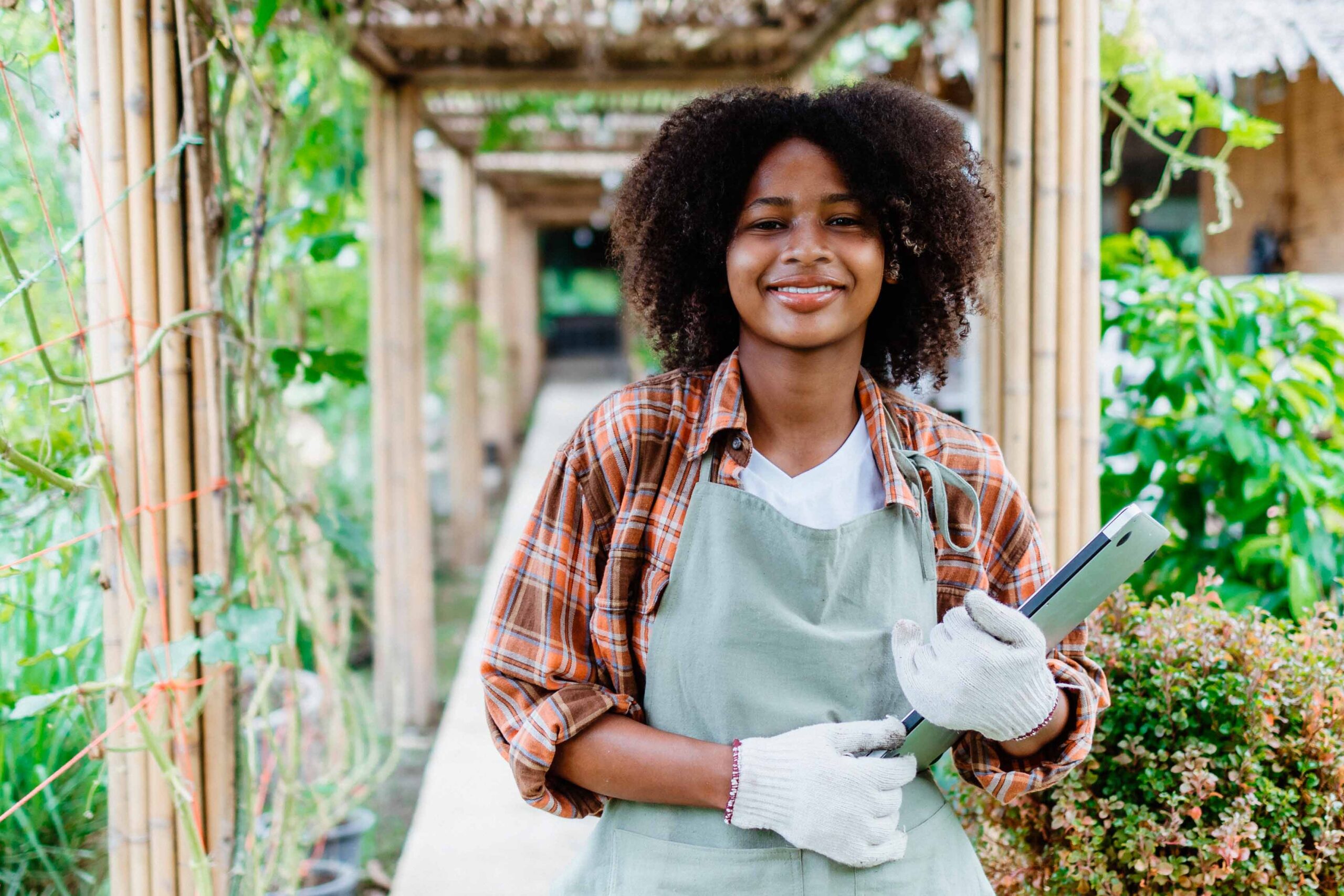It is vital to replicate and upscale success stories, writes Peter Setou
June 2024: Land reform – Land reform initiatives in South Africa present a crucial avenue for addressing youth unemployment and stimulating economic development, particularly in rural areas. However, several challenges continue to hinder youth participation in these initiatives.
The success of land reform initiatives relies on various factors, including maintaining land productivity, generating an income, fostering job creation, and facilitating skills transfer. Eco-tourism and agriculture on restituted land, for example, can offer significant employment opportunities, especially in rural areas, as they can contribute to overall economic growth.
According to the latest data from Statistics South Africa’s Quarterly Labour Force Survey (QLFS), agricultural employment in South Africa has increased by 21000 individuals during the first quarter of 2024. Whilst this limited growth in employment should be welcome, young people continue to remain vulnerable in the labour market. The latest results show that youth unemployment rate grew by 1.3% from 44.3% in quarter 4 2023 to 45.5% in quarter 1 2024. This is unsustainable for us as a country in a long run and addressing the needs of these vulnerable youth, especially those in disadvantaged rural areas, is imperative.
There is a need for increased involvement of youth on restituted land. This entails changing perceptions about land reform among young people. Many of them are reluctant to get involved in programmes around restituted land as there is a perception that most of the work involves farming, which they associate with manual labour, suited to those without a formal education. However, there are diverse opportunities beyond physical labour. There are operational opportunities that can be accessed by young people, especially given the reality of the ageing of the current active members of Communal Property Association (CPA).
The average age of CPA members is between 45 and 65, indicating a demographic imbalance that threatens the long-term sustainability of the land reform programme. Educating young people about the diverse opportunities available on restituted land, including eco-tourism and agro-processing, is vital. By developing succession plans for youth involvement, we can ensure the continuity and effectiveness of land reform initiatives.
Promoting Community Private Partnership (CPP), pioneered by Vumelana Advisory Fund, have shown promise in driving successful land reform initiatives that can successfully absorb young people into the restored land. These partnerships aim to transfer skills and create jobs and the ripple effects thereof is the ability to empower youth to participate in the economy through cooperatives, small-scale farming projects as well as providing other services required within such businesses established.
Vumelana has facilitated community private partnerships that have developed commendable programmes showing promising results and demonstrating further potential for youth participation in land reform. Among them is the Giba CPA in Hazyview, Mpumalanga, which may possibly be winning the war against the youth’s apathy through its numerous empowering initiatives.
Giba CPA is currently one of the land reform beneficiaries working with the government to launch Fortune 40, a three-year programme to mentor and train a cohort of young people to learn the ropes of working and managing a farm. The CPA identified 80ha of land for the programme, on which young people learn how to run and manage different programmes including planting vegetables, growing bananas, and managing a piggery and a chicken run.
The initial phase of the programme was restricted to a cohort of 10 young people, who are the children of the beneficiaries of the CPA members. The rollout will then be further expanded to accommodate more young people at a later stage.

In addition, Giba Agri, a community company, has three youth members, one of whom is part of the Executive Committee. The youth are responsible for coordinating youth programmes and developing a database of other young people who have an interest in farming; and keeping records of them for when opportunities arise within the CPA.
Another case in point is the partnership between the Mmamahlola CPA and Serala Farms in Tzaneen, Limpopo, where the CPA actively has its young people involved in leadership roles. In 2016, Vumelana facilitated a 25-year lease agreement between the CPA and Serala Farms, their commercial partner, for the redevelopment of 360ha of orchards to produce soft citrus, avocado and macadamia for export. The CPA is receiving income generated from the lease agreement and it is estimated that 160 jobs will be created once the project reaches maturity; enabling the CPA to begin making its land profitable, create jobs and uplift its communities. The project has the potential to improve the livelihoods of 3 063 beneficiary households.
Efforts are being made to ensure that young people are involved in agriculture, in some instances by sending them on agriculture courses and, in turn, absorbing them in operations on the farm.
The Barokologadi CPA in the Northwest is another example. A partnership was signed with Elephants Rhinos and People Conservation (ERP) for ecotourism projects on the land. The CPA has establishment a skills development center in Pitsedisulejang village aimed at upskilling young people to participate in various programmes on the restituted land, along with other employment opportunities that may arise. The centre has to date enrolled more than 130 youth from the Barokologadi villages and surrounding areas on a year-long End-User Computing learnership programme over the past three years. On completion, the young people can use these skills to contribute to the work of the CPA on the restituted land or seek employment opportunities elsewhere. Plans are underway to introduce other training interventions. In addition to this,15 youth members from the community have been assisted to establish and are now running a bee keeping and honey production business.
Given the current social and economic challenges facing young people, it is becoming even more important to replicate and upscale some of these success stories to benefit more young people in communities where land reform is being implemented.
Without a doubt, the gaps that currently exist in land reform can be bridged if young people are given a chance to participate. CPAs need to prioritise inclusion of young people within their structures whilst government can provide support programmes for skills development, working together with private sector partners. We need to equip young people so that they can contribute to land reform. This will not only address unemployment but will also foster succession planning and develop a new generation of leaders capable of driving positive change in their communities.
Peter Setou is the chief executive of the Vumelana Advisory Fund



